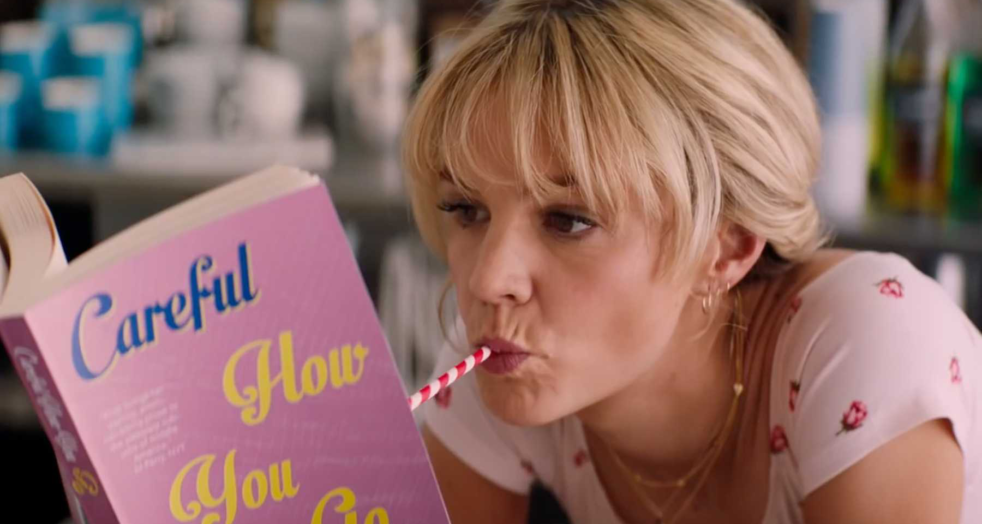Our Take: 2 Stars
When “Promising Young Woman” premiered at the 2020 Sundance Film Festival, it had a culturally relevant #MeToo storyline and many well-renowned credits to its name. Margot Robbie led as producer, Carey Mulligan, Alison Brie, Bo Burnham and Laverne Cox as stars, and award-winning actress and writer Emerald Fennell at the helm of the ship, making it hard to deny the “promise” this film held.
Fennell’s film follows Mulligan’s (“The Great Gatsby”) Cassie, a medical school drop-out working as a barista after the death of her best friend Nina, who was sexually assaulted while they were both in school.
Following Nina’s death, Cassie embarks on a revengeful spree: by day, Cassie’s life is unassuming, but at night, she feigns drunkenness and attempts to teach a lesson to the “nice guys” that try to take advantage of her inebriated state.
With dark humor and witty writing, this film addresses many important issues surrounding sexual assault: implied consent, lack of accountability, resulting trauma and more. However, it ultimately falls short of packing the cultural punch it was aiming for, often swapping out thoughtful narrative choices for more thrilling or aesthetic ones.
Despite its lack of thematic depth, Fennell’s film is visually stunning and uses hyper-feminine imagery to create a beautiful, cohesive aesthetic that juxtaposes the traditional thriller film portrayal of “femininity” as weakness with the violence that is at the heart of its themes.
Additionally, Carey Mulligan delivers a wonderful and dynamic performance that carries the film through its humorous and emotional notes.
While the imagery and acting is exemplary, their function within the film’s storyline is less so. The film approaches sexual assault from an individual standpoint (focusing on individual men and their flaws), rather than a systemic one.
While there was room for discussion on how our culture is not only complicit but responsible for the lack of care and understanding around consent and abuse, Fennell opts for more concrete villains to be the targets of Cassie’s weaponized femininity.
This narrative angle directs all of the viewer’s anger and blame at the condemnable individuals in the story rather than sharing that blame with the incentives and institutions that perpetuate and profit off of systems of abuse and lack of accountability.
While it is clear that viewers are not supposed to follow in Cassie’s self-destructive footsteps, the audience emphasizes with her anger and feels satisfaction when complicit individuals get a taste of their own medicine. The culture that created those individuals is left unaddressed.
This is where Fennell’s writing takes a step beyond confused messaging and enters the realm of actively detrimental portrayals of sexual assault.
“Proming Young Woman” centers around one character, Cassie, who viewers know mainly through her connection to the victim of the sexual assault in question — her best friend, Nina, who we know nothing else about.
While Fennell intended this to be a way for the audience to place themselves in Nina’s shoes without any other character specialization to muddy the waters, it also lends itself to seeing Nina as a plot device: an object.
In this case, this object is central to Cassie’s character. Thus, reading more as a revamped John Wick film, “Promising Young Woman’’ reenacts all of the tropes associated with the “dead wife” backstory present in many revenge plots and then offers them to us with a new chromatic sheen and calls it empowering.
While these tropes often do offer a legitimate motivation for the central character’s actions, the actions that follow and the themes at play need to be considered when assessing the legitimacy of this strategy.
Power and respect are pertinent and useful issues to discuss about sexual assault, but Fennell does not address either of these issues in a constructive manner.
Despite attempting to break through narratives that paint women as punchlines and afford their characters no agency over their own stories, Fennell ultimately ends up perpetuating this stereotype by having her characters be entirely grounded by sexual assault rather than it being something that affects them as complex individuals.
While it is commendable to see filmmakers tackle difficult subjects like the ones addressed in “Promising Young Woman,” it is frustrating to see flashy presentations that rely on performative representation and blame deflection receive various accolades,.
Meanwhile, more thoughtful representations such as HBO’s miniseries “I May Destroy You” remain in the dark.
That being said, it should always be possible for writers to create stories that are not constrained by their cultural context or moral obligations, but stories should never be free from criticisms that take those things into account.
“Promising Young Woman” is currently available to view for $19.99 on Amazon Prime Video.
